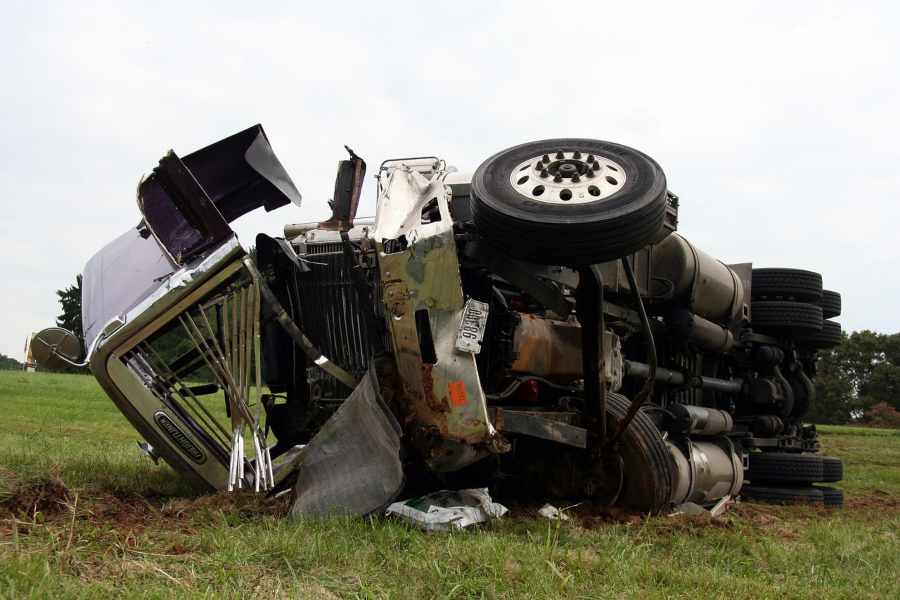Navigating the aftermath of a truck accident can be overwhelming, especially when it comes to understanding compensation. Several factors play a critical role in determining compensation in a personal injury claim, including medical expenses, lost wages, and the severity of injuries. Each case has unique circumstances, which can affect the final settlement amount significantly.
In personal injury claims related to truck accidents, liability can also impact compensation. Factors such as negligence on the part of the truck driver, the trucking company, or vehicle maintenance issues can influence the outcome of a claim.
Determining Factors for Compensation
Several factors influence the compensation awarded in a personal injury claim following a truck accident. These aspects include the severity of injuries sustained, the liability assigned to responsible parties, and the categorization of damages, both economic and non-economic.
Severity and Impact of Injuries
The extent of injuries from a truck accident critically affects compensation. Serious injuries, such as spinal cord damage or traumatic brain injuries, usually lead to higher compensation amounts due to long-term medical care and rehabilitation needs.
Factors to consider may include:
- Type of Injury: The kind of injury sustained influences future care costs.
- Duration of Recovery: Longer recovery periods correlate with higher expenses.
- Impact on Daily Life: Injuries affecting daily activities lead to increased compensation due to diminished quality of life.
Liability and Negligence
Determining liability plays a pivotal role in personal injury claims. If the truck driver, trucking company, or another party is deemed negligent, they may bear the financial responsibility for damages.
Key considerations include:
- Evidence of Negligence: Documents such as police reports, witness accounts, and dashcam footage contribute to proving fault.
- Comparative Negligence Laws: In some states, if the injured party shares some fault, compensation may be reduced accordingly.
Economic Damages
Economic damages refer to tangible losses that can be calculated precisely. These include medical bills, lost wages, and property damage resulting from the accident.
Main components of economic damages are:
- Medical Expenses: This encompasses hospital stays, surgeries, prescriptions, and rehabilitation costs.
- Lost Wages: If the injury prevents the individual from working, lost earnings can be claimed.
- Future Financial Losses: Forecasted future lost income due to the inability to work is also factored in.
Non-Economic Damages
Non-economic damages compensate for intangible losses, such as pain and suffering, emotional distress, and loss of enjoyment of life. Unlike economic damages, these are harder to quantify.
Considerations for non-economic damages may include:
- Pain and Suffering: The physical pain endured due to injuries affects compensation calculations.
- Emotional Distress: The psychological impact of the accident can influence the amount awarded.
- Loss of Consortium: The effect of injuries on relationships may also play a role in compensation.
Legal Representation and Its Importance
In personal injury claims following truck accidents, legal representation plays a vital role in ensuring fair compensation.
Role of a Truck Accident Lawyer
A truck accident lawyer assesses the details of the case and gathers all necessary evidence. This includes police reports, medical records, and witness statements. They help clients understand their rights and the potential outcomes of their claims.
Additionally, they provide crucial advice on whether to accept settlement offers from insurance companies. Their expertise helps in identifying responsible parties and calculating damages accurately.
Negotiation and Litigation Strategies
Neglecting the negotiation aspect can be detrimental to a personal injury case. A skilled truck accident lawyer employs various strategies when negotiating with insurance companies, ensuring that clients receive fair settlements.
If negotiations fail, they are prepared to take the case to court. Their litigation strategies involve meticulous preparation, including developing persuasive arguments and gathering evidence to support claims.


